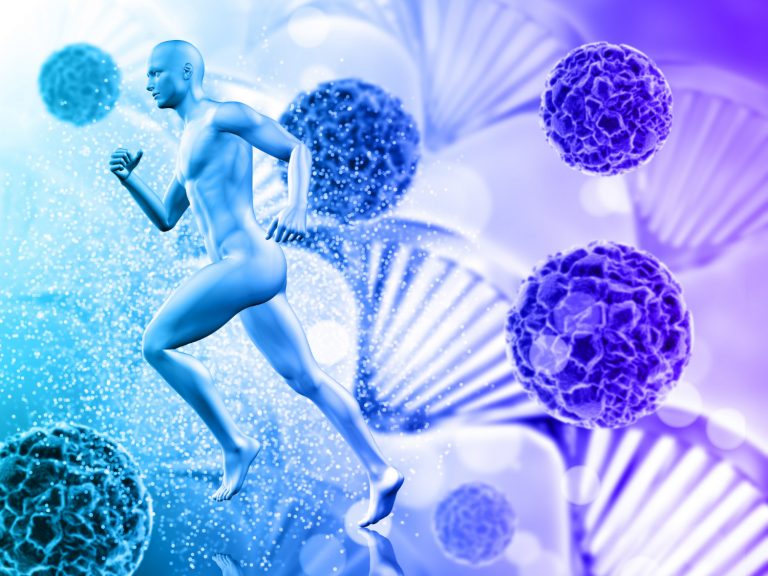Energy metabolism is the powerhouse of your body’s functions. It’s how your body converts the food you eat into energy. Understanding this process is essential—not just for weight management, but for overall health and vitality. Let’s dive into seven surprising facts about energy metabolism that could change the way you view food, fitness, and your well-being.
Contents
- What Is Energy Metabolism, and Why Does It Matter?
- 1. Your Metabolism Is Unique to You
- 2. The Role of Hormones in Energy Metabolism
- 3. The Thermic Effect of Food (TEF) Is Real
- 4. Age Is Just a Number, but It Affects Metabolism
- 5. Sleep Is Your Metabolism’s Best Friend
- 6. Hydration Matters More Than You Think
- 7. Stress Can Sabotage Your Metabolism
- Bottom Line
- FAQs
What Is Energy Metabolism, and Why Does It Matter?
Energy metabolism refers to the biochemical processes that convert food into energy. This process isn’t just about burning calories; it’s about fueling your body for everything from daily tasks to intense workouts. When you grasp how energy metabolism works, you can make informed choices that enhance your health, boost your energy levels, and even improve your mood.
1. Your Metabolism Is Unique to You
Just like your fingerprint, your metabolism is uniquely yours. Factors like age, gender, genetics, and even muscle mass play a significant role.
- Basal Metabolic Rate (BMR): This is the energy your body requires at rest. It can vary widely from person to person.
- Muscle vs. Fat: Muscle burns more calories at rest than fat. If you want to increase your metabolism, consider incorporating strength training into your routine.
Understanding your unique metabolism can empower you to make lifestyle choices that work for your body. For a deeper dive into how BMR affects your energy levels, check out the National Institutes of Health.
2. The Role of Hormones in Energy Metabolism
Hormones are the unsung heroes of energy metabolism. They regulate how efficiently your body converts food into energy.
- Insulin: After you eat, insulin helps transport glucose into your cells for energy. Too much insulin can lead to fat storage.
- Thyroid Hormones: These hormones control your metabolic rate. An underactive thyroid can slow down metabolism, while an overactive one can speed it up.
Balancing your hormones is crucial for maintaining a healthy metabolism. Consider consulting a healthcare provider if you suspect hormonal imbalance.
3. The Thermic Effect of Food (TEF) Is Real
Did you know that your body burns calories just by digesting food? This is known as the Thermic Effect of Food (TEF).
- TEF Accounts for 10% of Daily Caloric Expenditure: Some foods require more energy to digest, particularly protein.
- Protein Power: Including more protein in your diet can give your metabolism a little boost.
Choosing foods that enhance your TEF can make a meaningful difference in your energy balance. For more insights into nutrition, check out the Academy of Nutrition and Dietetics.
4. Age Is Just a Number, but It Affects Metabolism
As you age, your metabolism naturally slows down.
- Muscle Loss: After the age of 30, you may lose about 3-8% of muscle mass per decade. This decline can lower your BMR.
- Metabolism Changes: Hormonal shifts during menopause can also impact metabolic rate.
But don’t despair! You can counteract these changes with regular exercise and a balanced diet. Staying active is key to keeping your metabolism humming.
5. Sleep Is Your Metabolism’s Best Friend
You may think you’re just resting, but sleep is a crucial player in energy metabolism.
- Restorative Sleep: Quality sleep helps regulate hormones like cortisol, which can impact metabolism.
- Sleep Deprivation: Lack of sleep can lead to weight gain by increasing hunger and cravings.
Prioritizing quality sleep is as important as diet and exercise. Aim for 7-9 hours of restorative sleep a night for optimal metabolic function.
6. Hydration Matters More Than You Think
The importance of water in energy metabolism can’t be overstated.
- Metabolic Reactions: Many metabolic processes require water. Even mild dehydration can slow down your metabolism.
- Caloric Burn: Drinking cold water can actually increase calorie burn, as your body uses energy to heat the water to body temperature.
Make hydration a priority in your daily routine. Aim for at least eight 8-ounce glasses of water a day, and more if you’re active.
7. Stress Can Sabotage Your Metabolism
Stress is a sneaky saboteur of your metabolic health.
- Cortisol Levels: When you’re stressed, your body produces cortisol, which can lead to fat storage, especially in the abdominal area.
- Emotional Eating: Stress might also drive you to indulge in comfort foods, which can further disrupt energy balance.
Finding effective stress management techniques—like yoga, meditation, or even a good book—can help keep your metabolism on track.
Bottom Line
Understanding energy metabolism is not just for fitness enthusiasts. It’s for anyone who desires to feel vibrant and energetic while living their best life. By embracing these seven surprising facts, you can make empowered choices that enhance your health, mood, and energy levels.
Are you ready to take control of your metabolism? Start by incorporating these insights into your daily routine. Your body will thank you!
FAQs
Q: Can I speed up my metabolism?
A: Yes! Incorporating strength training, staying hydrated, getting enough sleep, and managing stress can all help boost your metabolism.
Q: Is it normal for my metabolism to slow down with age?
A: Yes, it’s a natural part of aging, but lifestyle choices can help mitigate the effects.
Q: How much protein should I include in my diet for optimal metabolism?
A: Aim to include a source of protein in every meal. A general guideline is to consume 0.8 grams of protein per kilogram of body weight.
Embrace these facts, and take charge of your energy metabolism today!
Get Your FREE Natural Health Guide!
Subscribe now and receive our exclusive ebook packed with natural health tips, practical wellness advice, and easy lifestyle changes, delivered straight to your inbox.





